10 things we learnt about The Fourth Industrial Revolution at this year's Innovation Conference
I always get a warm fuzzy feeling the day after Crimson Innovation Conference. Everybody in the office is talking about the conversations they had and the remarkable presentations they witnessed – we get as much out of it as our guests! So while it's still fresh, here is my take on what we learnt at this year's conference.
1. Digital disruption is REALLY happening... RIGHT NOW
We asked over 100 senior IT leaders from a spectrum of industries for their opinion. Rather than listen to the hype and opinions of people with ulterior motives, it's crystal clear to us that digital disruption hasn't just started but is well under way for many of our attendees.
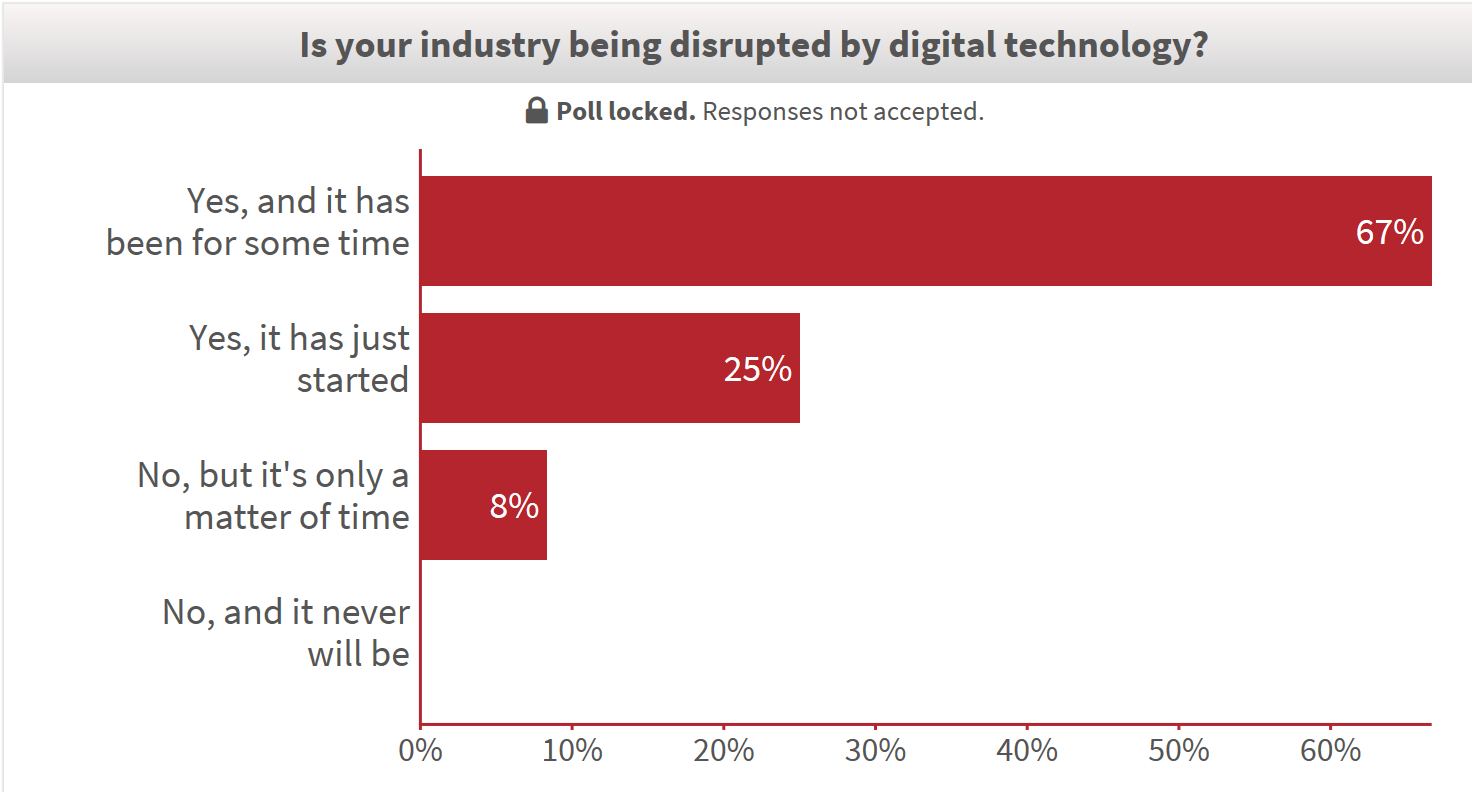
2. Don't blame the C-suite for the lack of progress in responding to digital transformation
A lack of skills, vision and cultural resistance are holding up progress in responding to digital transformation. As Dave Coplin - our keynote speaker - noted, people are actually quite good at change, but it takes time and the change has to appeal to their self-interest before we'll happily switch. While a lack of IT skills is a perennial problem, making the case for change that is clear and compelling to the business remains a struggle.
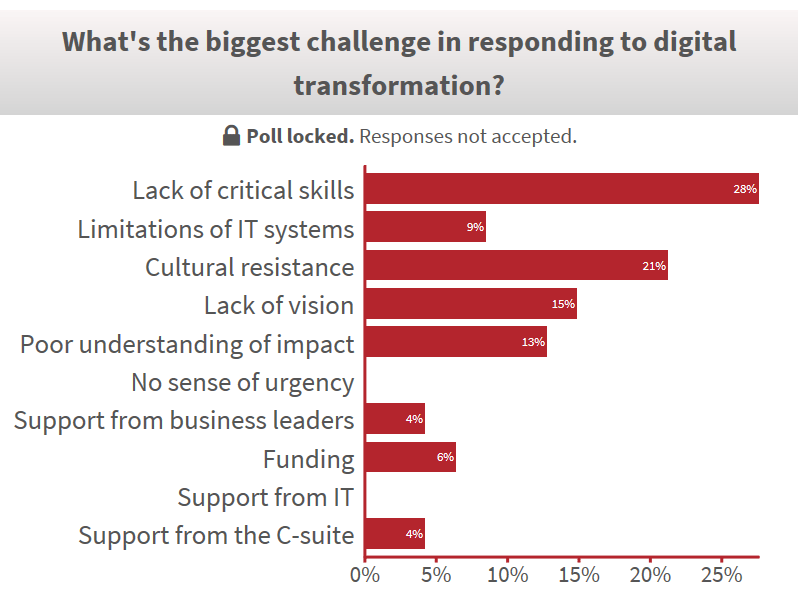
3. The winners will take all... sort of
Marc Dowd made the case that we are in a period of incredible instability, which is accelerating the need for radical business model innovation. But in this new world there will be but a few winners: even those good at change will struggle to make a difference to the bottom line compared to those that can execute brilliantly, first time.
4. The CIO is more relevant than ever
Both the survey in the room and Harvey Nash's 2018 global CIO survey confirms the increasing importance of the CIO at the most senior level. There was a strong sense in the room (admittedly a room of senior IT leaders) that it was the Head of IT/CIO that was primarily driving innovation in the business.
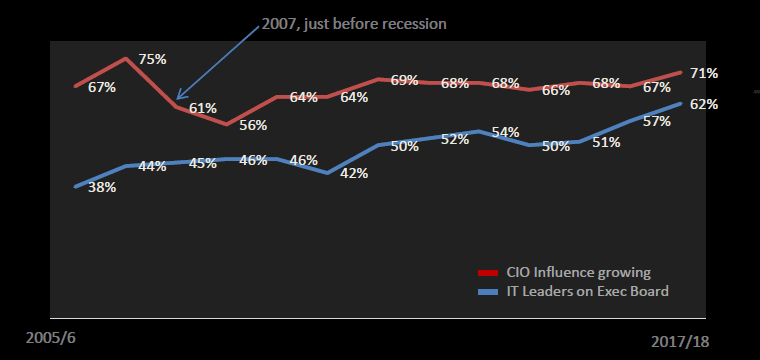
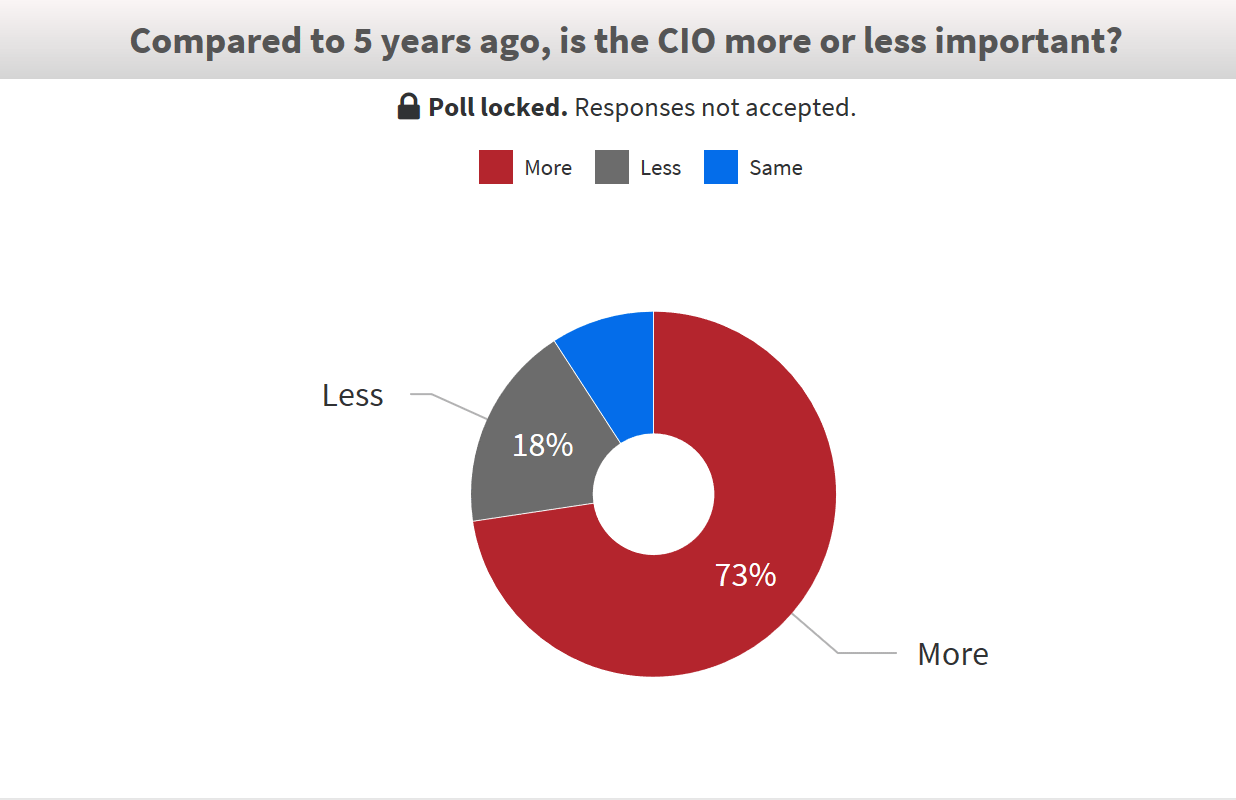
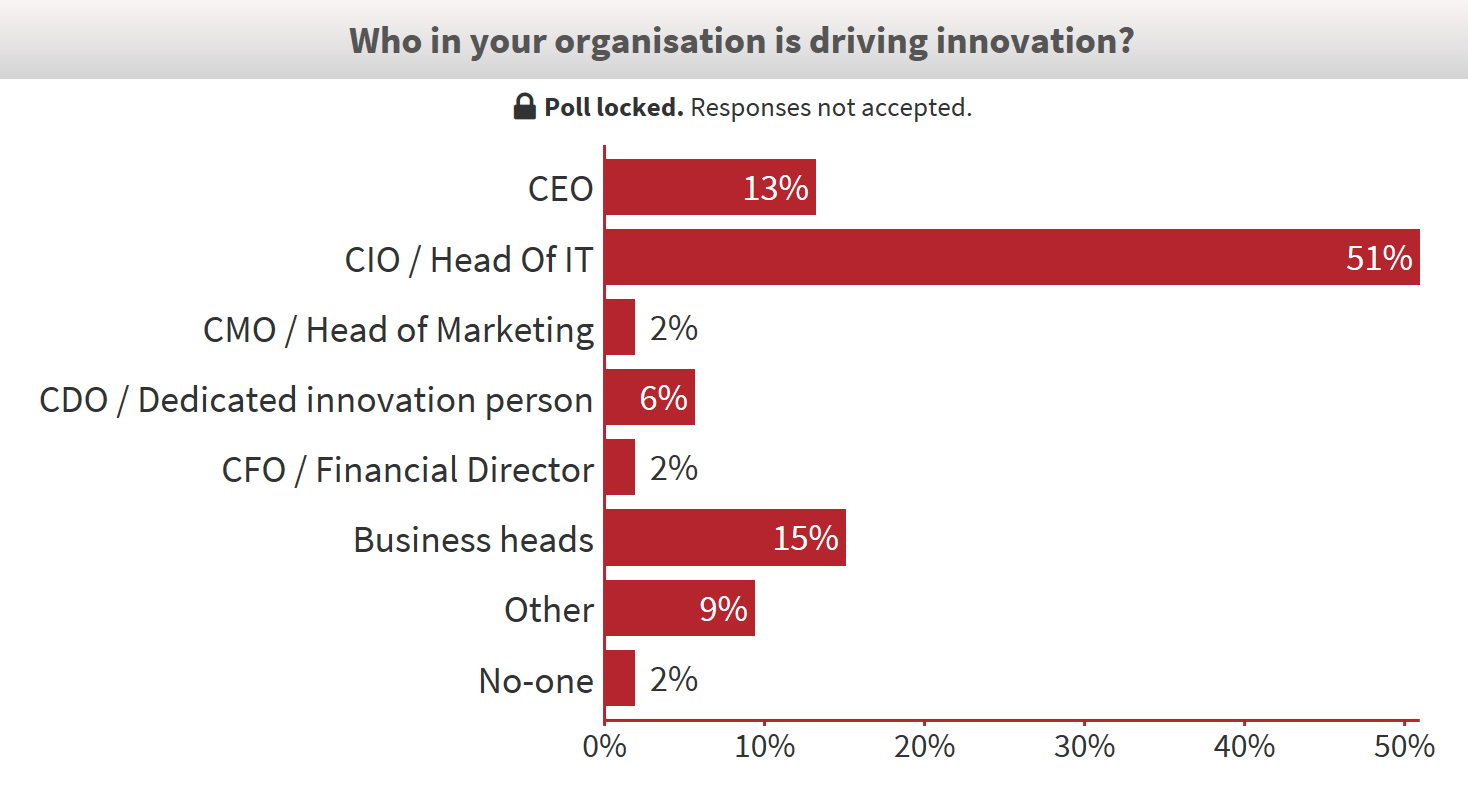
5. Many remain at a 'data disadvantage'
Most examples of good practice in navigating the Fourth Industrial Revolution stem from companies, such as Amazon or Tesla, who put data at the heart of their organisation. Without the burden of legacy technology or culture, they have highly digitised business processes, where data constantly helps inform their next strategic decision or product innovation. More established business, with disparate 'analogue' processes, are at a continued disadvantage. And the longer this situation persists, the higher the threat from disruptive new entrants.
6. Data is everywhere, if you look hard enough
Some have tracked shipments of toilet rolls to highlight US Navy movements, others have used drones to track competitor office car spaces. And some retailers have used phone GPS to persuade customers to turn around when approaching a competitor. Data leakage is everywhere... it just takes a little bit of creative thinking to unlock the potential.
7. Banking Bots are here... sort of 
We met Cora, the face of NatWest's new chatbot. While Cora could help with common customer requests, the interactions we saw still felt awkward and a little slow. But we could all see the potential though and expect this technology to get much better in the next 2-3 years.
8. Your staff can vote on how much your colleagues get paid
Daniel Hulme gave everyone a PhD lesson in machine learning. Among many aspects of Daniel's talk, one of the most striking points for me was how he manages his own company of 60 people, in a very flat, collaborative structure. Daniel built an algorithm whereby each employee gets to vote on how much colleagues should earn. Extraordinary stuff!
9. Block chain awaits the killer app
While most felt that the claimed timescales before Blockchain went mainstream were overly optimistic, many saw the huge potential. Perhaps it will take a large company to step forward before others will follow suite. Haydn Jones made the case that a killer app will finally push Blockchain into the mainstream... there's a big opportunity there for someone.
10. Super intelligence will be the last thing humans ever create
While we learnt how incredibly difficult it is to have machines reasoning unstructured and incomplete information, predictions for when we would ultimately create a super computer infinitely more intelligent than humans ranged from 12 years (a 10 percent probability, apparently) to around the middle of this century. Dave Coplin left us feeling optimistic about the future, seeing machines as assistants to a future with far less friction in our every day goings-on.
Crimson's Innovation Conference returns in 2019. Be sure to subscribe to Crimson's blog or sign up for our Salary Survey so that we can email you when bookings open.


